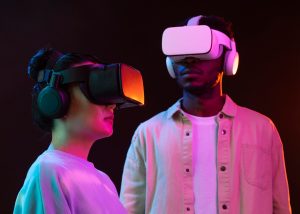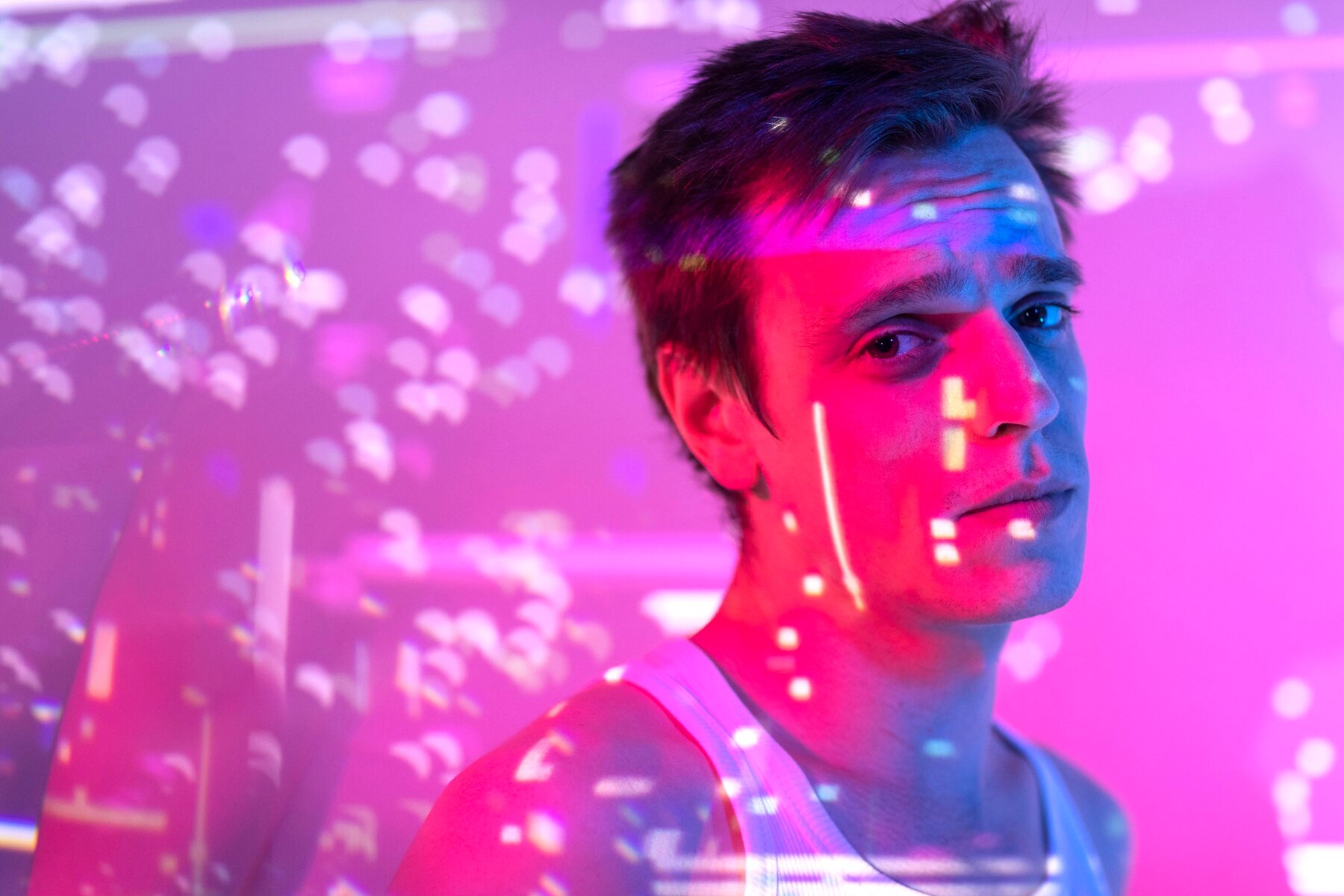In an era where technology seems to advance at lightning speed, one of the most exciting frontiers is the intersection of artificial intelligence (AI) and entertainment. From streaming platforms that know exactly what you want to watch next to video games that adapt to your skill level, AI is transforming how we experience entertainment. But the revolution doesn’t stop at customization—AI is paving the way for an entirely new dimension of immersive and personalized entertainment. In this article, we’ll explore how AI and personalization are shaping the future of entertainment and why it matters to us as consumers.
The Rise of AI in Entertainment: A Game-Changer
Over the last decade, AI has made its way into almost every aspect of our lives, and entertainment is no exception. Traditionally, consumers were presented with a fixed selection of content, whether it be a movie theater lineup or a TV channel schedule. But today, AI has enabled a shift from one-size-fits-all content to dynamic, personalized experiences. AI is not just a tool for content creators; it’s a driving force behind content delivery.
For example, Netflix, the streaming giant, uses machine learning algorithms to analyze viewing habits and recommend shows or movies based on individual preferences. By understanding your past viewing choices, Netflix can suggest content that aligns with your tastes, creating a personalized experience every time you log in. Other platforms, such as Spotify, are also capitalizing on this trend, crafting playlists based on your listening history and even the time of day. The ability to predict what you want next is a cornerstone of AI in entertainment, and it’s just the beginning.
AI-Powered Content Creation: The Future of Storytelling
While AI’s role in curating content is significant, its involvement in content creation is equally groundbreaking. Today, AI is helping creators in everything from scriptwriting to visual effects, and it is expected to have an even bigger impact in the future. AI-driven tools can now assist writers by generating story ideas, creating dialogue, and even predicting how a story will resonate with audiences based on past data. This allows creators to craft more engaging, targeted narratives.
In the film industry, AI has already begun to help with post-production tasks like color correction and visual effects. Imagine a future where AI isn’t just supporting the creative process but also co-creating the content. AI could eventually help develop personalized films, adjusting storylines in real-time to cater to the individual viewer’s preferences or emotional responses. This level of interactivity could bring storytelling to new heights, offering truly unique viewing experiences.

Virtual Reality and Augmented Reality: The Ultimate Immersive Experience
When it comes to AI in entertainment, the integration with virtual reality (VR) and augmented reality (AR) is another exciting frontier. These technologies, paired with AI, have the potential to immerse audiences in environments that were once unimaginable. Think of a video game where the characters interact with you as if you were truly part of their world, or a VR movie where the plot adapts based on your reactions. With AI-powered VR and AR, the future of entertainment is set to be far more interactive and immersive than we could have ever imagined.
Take, for example, the growing popularity of VR gaming. Titles like Beat Saber and Half-Life: Alyx are not just games; they are experiences that blur the line between fiction and reality. As AI continues to evolve, we can expect more personalized VR experiences where the game’s environment and narrative respond to the player’s actions, creating a fully immersive world.
In the world of AR, AI plays a significant role in enhancing user experiences by enabling more realistic interactions with the environment. Imagine walking down the street and having your phone suggest nearby places to eat, or better yet, offering an interactive tour of historical landmarks with personalized commentary. The potential for AI to create tailored AR experiences is immense, providing new ways for us to engage with our surroundings and consume entertainment on the go.
The Impact of Personalization: Customizing Our Entertainment Journeys
Personalization is the name of the game in today’s entertainment landscape. Gone are the days of mindlessly scrolling through endless rows of content, unsure of what to watch next. With AI, platforms can offer tailored recommendations based on your interests, watching habits, and even moods. Personalization is no longer limited to content curation; it’s expanding to include everything from user interfaces to advertising, creating a more seamless and enjoyable experience.
Take Amazon Prime Video’s X-Ray feature, for instance. This tool uses AI to offer real-time trivia, actor information, and plot details during a movie or show. If you’re watching a thriller and want to know more about a specific scene or actor, the app provides relevant information instantly. This level of interactivity is just one example of how AI is personalizing entertainment experiences for users, making them more engaging and tailored to our individual needs.
Moreover, AI isn’t just personalizing the content we watch or listen to. It’s also reshaping the way advertisers target us. Traditional advertising relies on broad demographic targeting, but AI allows for more sophisticated targeting based on personal preferences, behavior, and even emotions. As a result, ads can be more relevant, engaging, and less intrusive, leading to a more enjoyable entertainment experience overall.
The Rise of Interactive Entertainment: AI Meets Choice
One of the most exciting aspects of AI in entertainment is its ability to create interactive experiences. We’ve already seen the success of interactive movies like Bandersnatch, where viewers can make choices that impact the storyline. These types of experiences give audiences more control over the narrative, making the entertainment feel more personal and participatory.
But this is just the beginning. With AI, the possibilities for interactive entertainment are limitless. Imagine a movie that adapts in real time to your emotions, taking into account your facial expressions, heart rate, or even your choice of words. By integrating AI with biometric sensors, we could see movies that change based on your reactions, leading to a highly personalized and emotionally engaging experience. It’s no longer just about watching a story unfold—it’s about becoming an active participant in it.
The Ethical Implications of AI in Entertainment: A Double-Edged Sword
While the future of AI in entertainment is undeniably exciting, it also raises important ethical questions. As AI continues to learn from our behavior and preferences, how much of our personal data are we willing to share? Are we comfortable with algorithms shaping the content we consume, potentially reinforcing biases or narrowing our exposure to diverse viewpoints?
Additionally, as AI takes on a larger role in content creation, we must consider the impact on human creators. Will AI replace writers, directors, and actors, or will it simply act as a tool to enhance their work? Striking the right balance between human creativity and AI efficiency will be key to ensuring that entertainment remains diverse, imaginative, and authentic.
Conclusion: A New Era of Entertainment
The fusion of AI and personalization is undoubtedly revolutionizing the entertainment landscape. From how we consume content to how it’s created, AI is transforming every aspect of our entertainment experiences. As technology continues to advance, we can expect even more innovative and personalized content, blurring the lines between the real and the virtual, and giving us the power to shape our own entertainment journeys.
The future of entertainment is bright, and AI is at the heart of this exciting transformation. As we move forward, one thing is clear: the way we experience entertainment will never be the same again. It’s not just about passive consumption anymore; it’s about creating, interacting, and personalizing our own journeys in a world where technology understands us better than ever before. The future of entertainment is here—and it’s powered by AI.
